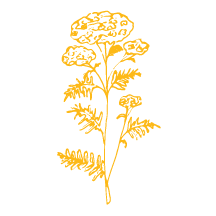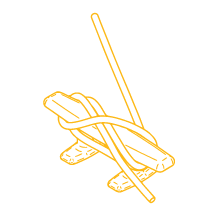
A former educator and school administrator, Anne Gobes has preparedness, foresight, and safety engrained in her system.
“I was working in schools back during the AIDS crisis. So as not to discriminate against any child, we used what were then called universal precautions—if there was blood, you assumed there was risk,” she says.
“That’s sort of how we approach it now,” she adds, referencing the spread of COVID-19.
Anne is by nature vigilant, not leaping into things without first doing research: in 2004, anticipating their retirement, she and her husband, Mike, looked “all over just to be sure” Southport Island was where they wished to settle; in 2010, before launching their post-retirement business, they investigated ideas for a year and a half (“we considered goats”); and before starting construction on what was to become the Cape Newagen Alpaca Farm and Gift Shop, Anne researched New England farmers and how they “deal with Nor’Easters.”
Her inquisitive and heedful attitude has served her well over the years.
She and Mike bought their first alpaca in 2011, boarding it (and other alpacas acquired over several years) with a farmer in the area (“we built our herd while still working in Connecticut”). In 2015, after four years of preparation (and about a dozen alpacas later), they left Connecticut for good and opened their alpaca farm to the public. Since then, the farm has become a self-sustaining business, offering everything from a gift shop to classes to private farm tours to alpaca trekking on a mostly seasonal basis (in the winter they operate by appointment only for farm visits and treks).
Anne—measured, thoughtful, and deliberate—exudes an air of calm when discussing the impact of COVID-19 on their business.
“This whole pandemic makes everyone wary,” she notes, recalling the its onset.
In March, anticipating the pandemic’s economic impact on their summer business (“I am not sure so many tourists will be coming”), Anne began thinking of ways for the farm to make up for lost revenue. As is her way, with a little research she came up with something: she created an online community on Patreon (a platform allowing people to make monthly pledges ranging from $3 to $15) and promoted it to the farm’s large social media following (4,000 on Instagram). Members receive a variety of alpaca-related perks while having the satisfaction of supporting the farm on an ongoing basis. Just launched, the new program already has more than a dozen members—a help to the business’s bottom line.
Though Anne does not know what sorts of crowds to expect this upcoming season (in normal years the farm sees 300 to 400 visitors a week), she and Mike are getting ready.
“You’ll see the farm is pretty clean and we have our biosecurity measures in place,” she says.
Even before the pandemic, biosecurity was a top concern for the alpaca farm. “We have to make sure visitors don’t bring something onto the farm to infect the animals, and that the animals do not infect our visitors.” Measures they have in place include a virucide footbath for visitors to wipe off the bottom of their shoes, and hand sanitizer available for all.
“We know how to keep people who come to the farm healthy, and the animals healthy.”
Though they have yet to announce the hours and dates they will be open to the public, Anne and her husband are hoping to open as early as the beginning of June (she recommends people watch the farm’s website and follow its social media posts for the latest information). They expect the visitor experience will be different from years past, and are preparing as necessary.
“We’re just trying to be safe like everyone else,” she says.
Anne makes a connection between how she is taking things and how alpacas respond to something new and unfamiliar.
“When something unexpected happens, when someone unknown comes into the yard, they assess: What do they want? Are they friendly? They kind of step back. That’s what an alpaca would do,” she says.
“And that’s kind of what we’re all doing.”




